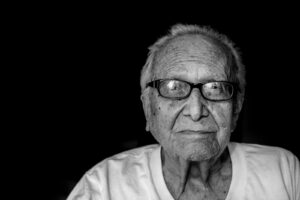Programme launches to tackle loneliness in care homes
An academic has launched an initiative to get tablet devices into care homes, in order to help residents keep in touch with loved ones.
Mark Brill, senior lecturer at Birmingham City University, has collaborated with technology business Memory Tracks and received donations from tech giants Huawei to provide 80 tablets to care homes across the country.
All the devices are pre-loaded with communication and video software including Skype, Google Hangouts and Zoom, with technical support being made available to help residents with receiving and making calls to friends and family.
Having previously researched the impact of music and technology usage on those living with dementia, Mr Brill was aware of the challenges that care homes are currently facing.
‘With the current Covid-19 crisis, isolation and loneliness are a major challenge for people living in care homes,’ he said.
‘It impacts on both mental and physical health. With social distancing, older adults in care homes are unable to receive visitors, where previously family members visited daily.
‘Video calling has been shown to alleviate isolation and we’re delighted to see an immediate response to our initiative with photos being sent in of residents using the technology so that they can see and speak to their families.’
Mark Brill and the Memory Tracks team are currently raising money via the Crowdfunder website to provide more devices to care homes and are already in contact with a number of technology providers who plan to provide devices for free or at a reduced cost.
‘As well as some finance to purchase devices, we’ll need some funds to package up the tablets and send them out to care homes,’ he added.
Earlier this month, ministers revealed Facebook is set to provide thousands of video calling devices, as part of a programme to help care home residents and patients keep in touch with loved ones.
The social media giant will provide up to 2,050 of its Portal video calling devices for free to hospitals, care homes and other settings including hospices, in-patient learning disability and autism units.
Around 50 of the devices have already been deployed to pilot sites in Surrey, with Manchester, Newcastle and London and other areas to follow, with support from Accenture.
Photo Credit – Pexels (Pixabay)
















